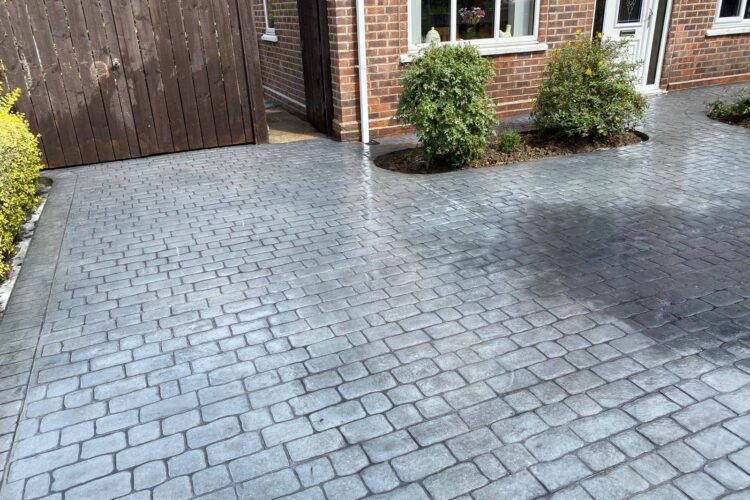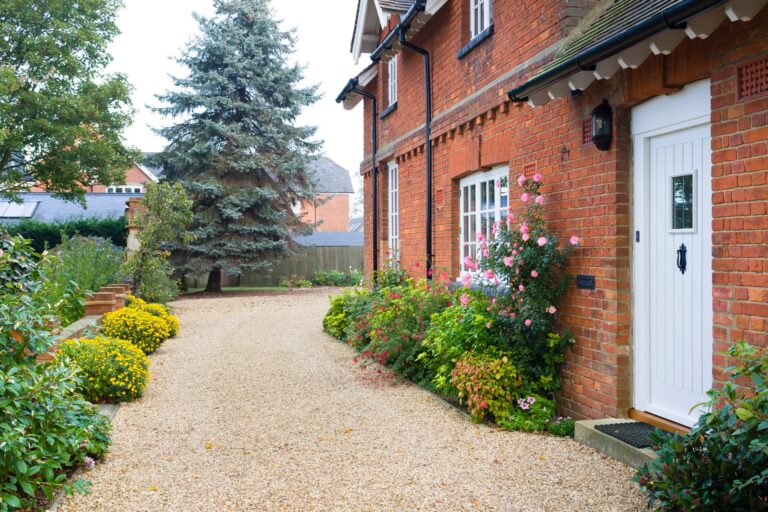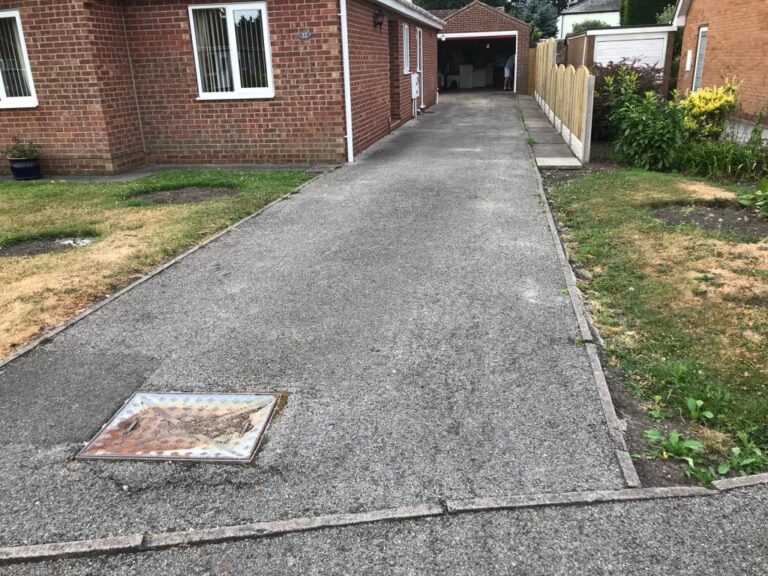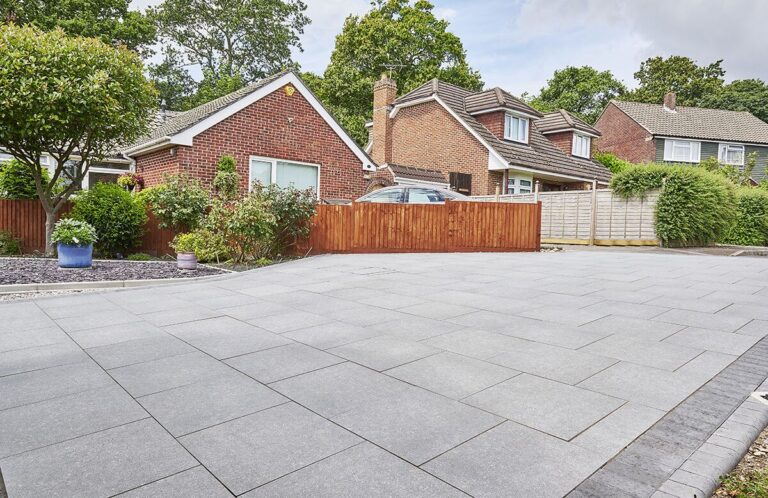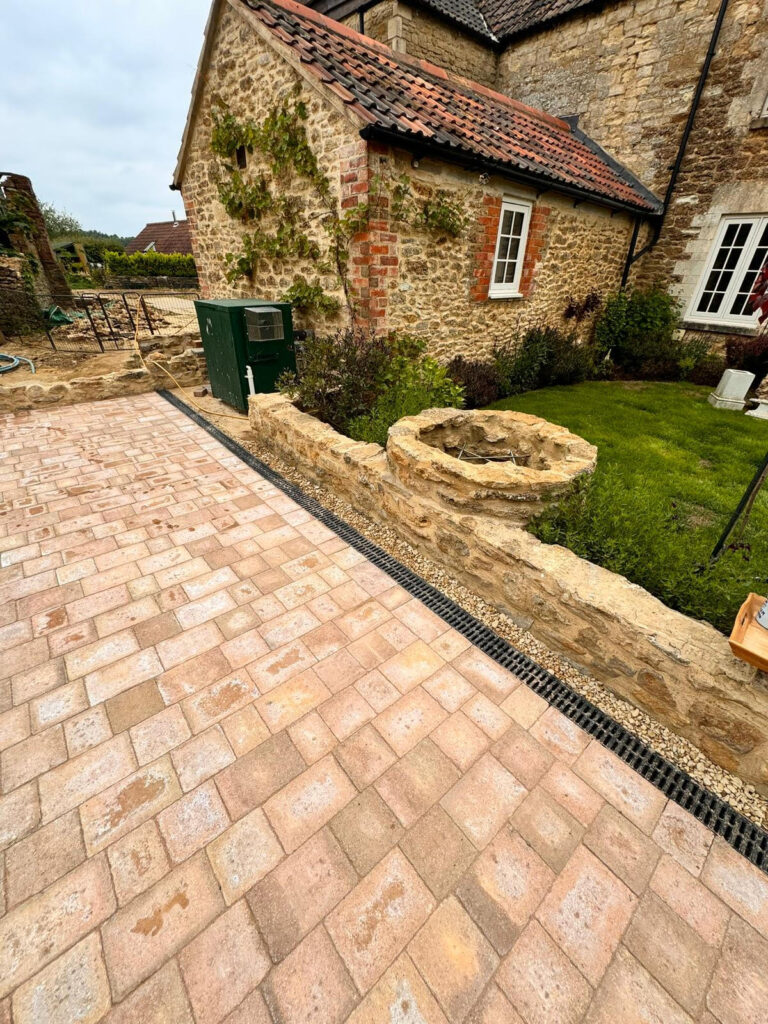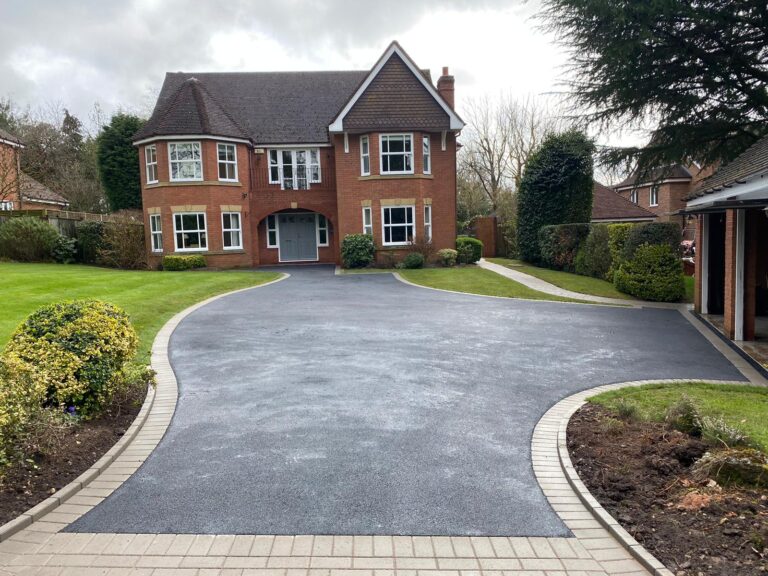A well-maintained driveway not only enhances the curb appeal of your home but also ensures its longevity and functionality.
Whether you have a tarmac, block paving, gravel, or resin driveway, regular care and maintenance are essential to keep it looking great for years to come.
Here’s how you can maintain your driveway and extend its lifespan with a few simple but effective steps.
1. Regular Cleaning
Cleaning your driveway regularly is one of the simplest ways to keep it in top condition.
Dirt, debris, and stains can accumulate over time, making your driveway look neglected.
The cleaning method you choose will depend on the material of your driveway.
Tarmac Driveways: To clean a tarmac driveway, start by sweeping away any loose dirt and leaves.
Use a hose or pressure washer on a low setting to wash the surface.
For stubborn stains, apply a mild detergent or specialist driveway cleaner.
Be cautious with pressure washers as high pressure can damage the surface.
Block Paving: Block paving can collect dirt and moss between the joints.
Regularly sweeping the surface with a stiff brush will help prevent debris from building up.
Once or twice a year, you can pressure wash the blocks to remove dirt and grime.
Be careful not to disturb the sand between the joints when using a pressure washer.
After washing, apply fresh sand to the joints to help keep the paving in place.
Gravel Driveways: Gravel driveways require regular raking to ensure the stones are evenly distributed.
This will prevent areas from becoming overly compacted and reduce the risk of weed growth.
Pressure washing can also help to clean up the gravel, but be mindful not to wash away the material or create uneven areas.
Resin Driveways: Resin driveways are relatively low-maintenance but still require regular sweeping to keep the surface clean.
You can use a hose to wash the surface, but avoid using harsh chemicals that may damage the resin.
If weeds or moss grow in certain areas, use a gentle brush or weed killer to treat the affected spots.
2. Weed and Moss Control
Weed growth can be a common issue for driveways, especially for block paving and gravel driveways.
Weeds not only look unsightly but can also cause damage over time by breaking up the surface.
Here’s how to tackle this problem:
Block Paving: To prevent weeds from growing between the blocks, apply a weed-resistant membrane underneath the paving during installation.
If weeds do appear, pull them up manually or use a weed killer designed for driveways.
You can also use a specialist jointing sand to help keep weeds at bay.
Gravel Driveways: Gravel is a more natural material that allows for better drainage but can also promote weed growth.
To keep weeds under control, regularly rake the surface to remove any growing plants.
If weeds persist, apply a weed killer or remove them by hand.
You can also use a weed membrane under the gravel to reduce growth.
Resin Driveways: Resin driveways are generally less prone to weeds, but moss and algae can grow in shaded areas.
Regularly clean the surface and treat any affected spots with moss remover.
3. Repair Cracks and Damage Promptly
Over time, your driveway may experience minor damage, including cracks, holes, or uneven areas.
It’s important to address these issues promptly to prevent them from worsening and causing further damage.
Tarmac Driveways: Tarmac driveways are prone to cracks, especially during the colder months when freezing temperatures can cause the surface to contract.
To repair small cracks, clean the area and fill it with a tarmac crack filler.
Larger cracks or potholes may require resurfacing or patching by a professional.
Block Paving: Block paving is quite durable, but over time, some blocks may become loose or cracked.
If this happens, carefully remove the damaged blocks and replace them with new ones.
Be sure to top up the jointing sand to secure the blocks in place.
Gravel Driveways: If your gravel driveway develops any large depressions or holes, simply top up the affected area with fresh gravel.
Make sure the gravel is evenly spread to avoid uneven surfaces that could cause difficulties for vehicles.
Resin Driveways: Resin driveways are generally durable, but if they do develop cracks, it’s important to address them quickly.
Depending on the severity, you may be able to fill the crack yourself, or you might need to call in a professional for a proper repair.
4. Resealing for Protection
Resealing your driveway helps to protect it from the elements, including rain, UV rays, and oil spills.
This is especially important for tarmac and block paving driveways.
Tarmac Driveways: Tarmac driveways should be resealed every few years to prevent cracking and weathering.
The sealer creates a protective layer that helps to maintain the tarmac’s appearance and increases its durability.
Apply the sealer on a dry, warm day and follow the manufacturer’s instructions for best results.
Block Paving: If you have block paving, sealing the surface can help prevent stains and make it easier to clean.
Sealing also helps to preserve the colour of the blocks and prevent moss growth.
Again, this should be done every few years to maintain the driveway’s appearance.
Gravel Driveways: Gravel doesn’t need to be sealed in the same way as tarmac or block paving, but applying a gravel stabilising binder can help keep the gravel in place and reduce shifting.
Resin Driveways: Resin driveways typically don’t require resealing.
However, if the surface becomes scratched or loses its gloss, a coat of resin sealant can restore its appearance.
5. Preventing Damage from Vehicles
To keep your driveway in good condition, avoid parking heavy vehicles in the same spot for extended periods of time, as this can lead to ruts or uneven areas.
Additionally, make sure to clean up any oil or grease spills quickly, as these can stain the surface, especially on tarmac driveways.
Maintaining your driveway may seem like a chore, but with regular cleaning, prompt repairs, and a little attention to detail, you can extend its lifespan and keep it looking great for years.
Whether you have tarmac, block paving, gravel, or resin, each material has its own maintenance needs, but with the right care, your driveway will continue to serve as a functional and attractive feature of your home.

